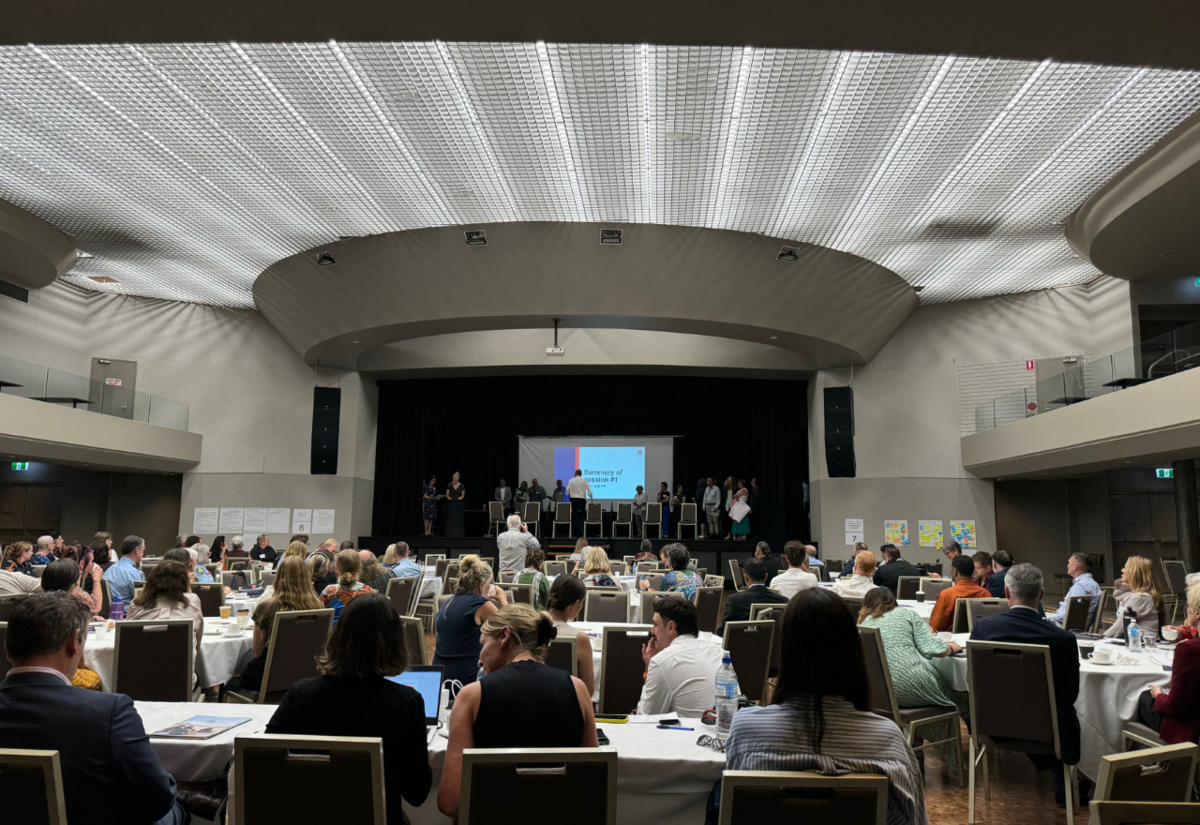Lismore Drug Summit looking for better outcomes for drug users
Simon Mumford
04 November 2024, 7:02 PM

The Regional Drug Summit rolled into Lismore yesterday, following last Friday's beginning in Griffith.
The opening of the Drug Summit was well attended by NSW Minister for Health Ryan Park, Minister for Transport Jo Haylen, Minister for Mental Health Rose Jackson, NSW Attorney General Michael Daley, Member for Lismore Janelle Saffin, Member for Ballina Tamara Smith, Member for Clarence Richie Williamson, Greens MP Cate Faehrmann and Sue Higginson, Mayor of Lismore Steve Krieg, Mayor of Ballina Sharon Cadwallader and former Chief Health Officer Dr Kerry Chant.
Janelle Saffin welcomed the two chairs of the Drug Summit, Carmel Tebbutt and John Brogden.
"They're both really sensible, smart, open-minded, and I know that they'll curate a report that will be able to chart a better way of responding to drug use across all the sectors, and they'll be able to do that for the government. I have absolute faith in both of them, and I admire and respect both of you."
Minister for Health Ryan Park said, "This is an opportunity for people with lived and living experience to have their say about the issues and challenges that they face. We can't always walk in their shoes, but we can, as legislators, particularly today, commit to have unwavering support and focus on solutions, to be able to manage and deal with the challenges they so bravely bring forward."
"Today, we continue, but not begin a discussion, a discussion that for some they may feel is 25 years in the making, but for others, it was a discussion they were having this morning, last night or last week, whether it's in their home, it's in their professional space, or whether it's in their community, and I acknowledge that this is a big issue for parents.
"As a parent of a 14-year-old boy, I can assure you that I don't think I'd be the only one in the room who is not wrestling with the challenges of risk-taking behaviours in their teenage years. So the parents out there today know that we are also cognizant and mindful that we need to support you in trying to help you navigate, particularly for young people, a safe path forward.
"But today, we also bring with us many different perspectives of this issue. We do want to have a challenging and robust discussion. I'd be disappointed if everyone agreed, but whilst challenging and robust, as John said, it must be respectful for us to listen and listen deeply to you, means that we also need to show that level of respect for differences of opinion, and today, we have the continuum right across the board."
The participants, experts in their fields, were broken into fourteen (14) groups so different topics could be discussed and potential solutions put forward. The participants included police, lawyers, service delivery providers and those with lived and living experience.
Janelle Saffin told the Lismore App she would like to see the stigmatism attached to drug users reduced as we have done with fields like mental health over the last decade.
Stigma was a common theme from a number of groups, which was reported by users through their employer, family and friends and the health service. It was mentioned that the criminalisation of drug behaviours also contributed to the stigma.
Other points raised during the morning session:
- The prescription and use of medical marijuana were consistently raised. Not only for the stigma surrounding prescribing the medication but to increase the number of GPs who are willing to prescribe them. Currently, that is 5% of GPs.
- Driving under the influence of medical cannabis should be explored as this is an increasing percentage of the community. As it is being prescribed by doctors, another group agreed it should be treated like all other prescription drugs.
- Early intervention and the support for families. Early intervention should include health, education and child protection all working together, with Child Protection to work with families and not just children.
- Evidence-based early education for young people, including lowering the age to 10, so 10-18 year olds.
- Decriminalisation was raised, with some groups not coming to a consensus about how that should be handled. Another group said de-penalisation might be the solution.
- Diversion was another part of the safety and justice group. There was a belief that certain services could be expanded. For example, the Adult Drug Court has gaps in regional NSW, and the Youth Drug Court was closed down. It was mentioned that a Drug Court in Lismore was long overdue.
- Changing the eligibility criteria from having a clean criminal record to include those who have a criminal record because they are in more need of diversion than anyone else.
- Increased support for people with problem drug use. So, drug and alcohol assessments for people in custody to assist them to get treatment when they are bailed or go back into the community. Similar help for drug users entering custody.
- More supervised drug injecting centres and exploring pill testing and the science behind it.
- Barriers: There was some discrimination by some GPs and pharmacists about treating and servicing those who have alcohol and other drug (AOD) dependencies. This could be solved through additional training and education during undergraduate degrees.
- More detox services are needed in the Northern Rivers and across the state.
- More facilities for women or refuges that take dependent people to help them escape domestic violence and to better service families and those with children.
- More cultural programs aimed at Aboriginal and Torres Strait Islander people instead of incarceration.
- Stronger collaboration between law enforcement and services to improve outcomes as opposed to criminalisation.
- An evaluation of all funded services to work out how to improve the areas that are weak.
- Developing clear information as to what services are available and how they can be easily accessed. Monika Wheeler, CEO at Healthy North Coast, ran a survey of over 3000 people across the North Coast just a couple of months ago. They found that two out of three people in the North Coast community who are seeking AOD care have found it really, really hard to access.
- The need to set up the NSW Drug Strategy.
- The lack of housing is a factor in the increase in drug users.
The Drug Summit now moves to Sydney for two days (December 4 and 5) before a report is compiled and sent to the NSW Government.

